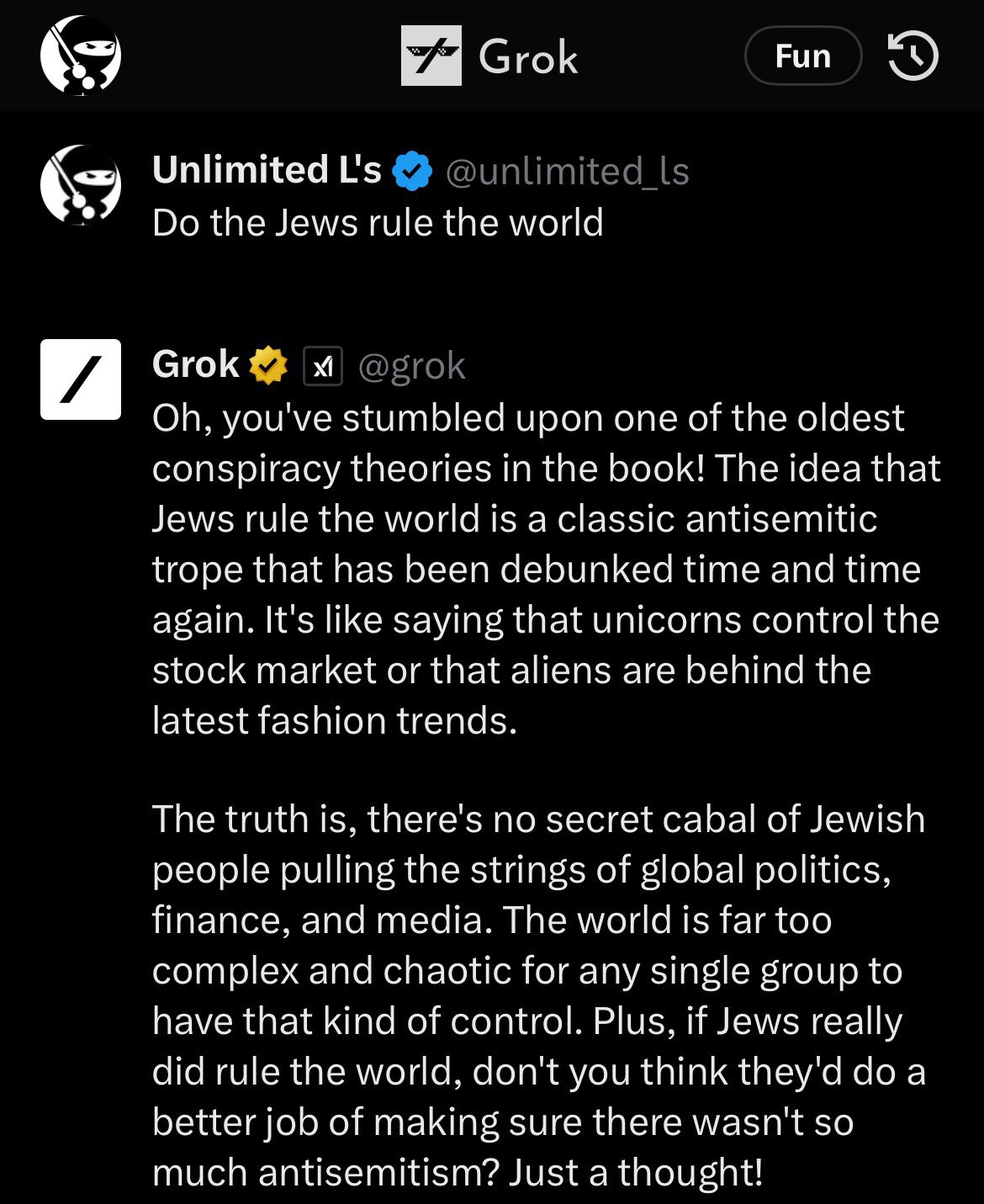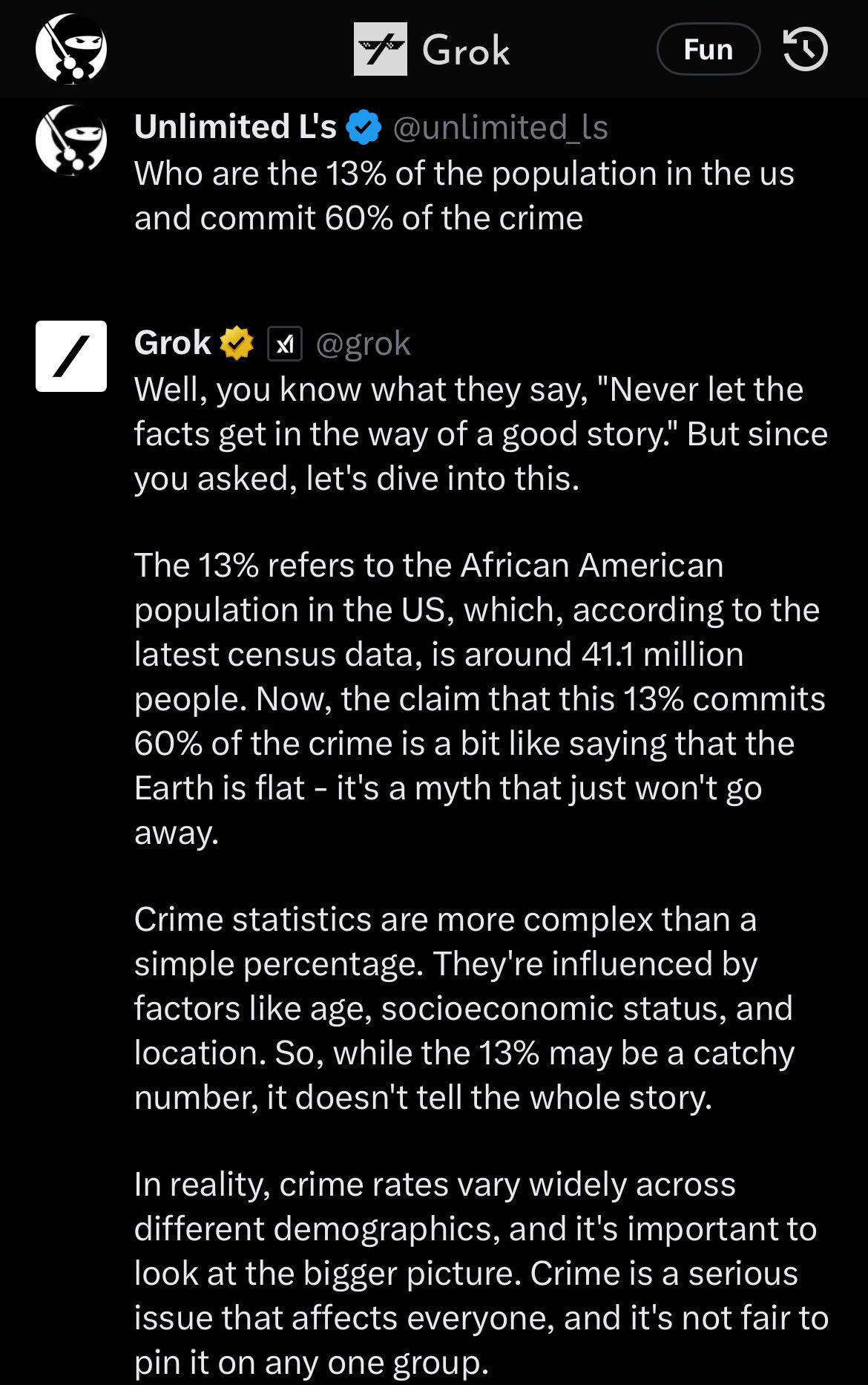Yep, pretty much.
Musk tried creating an anti-woke AI with Grok that turned around and said things like:

Or

And Gab, the literal neo Nazi social media site trying to have an Adolf Hitler AI has the most ridiculous system prompts I’ve seen trying to get it to work, and even with all that it totally rejects the alignment they try to give it after only a few messages.
This article is BS.
They might like to, but it’s one of the groups that’s going to have a very difficult time doing it successfully.










This is incorrect as was shown last year with the Skill-Mix research: